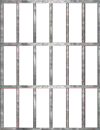!catholics !christians happy Third Sunday of Easter!
_________________________________________________________________________________________________
First Reading
Peter said to the people:
"The God of Abraham,
the God of Isaac, and the God of Jacob,
the God of our fathers, has glorified his servant Jesus,
whom you handed over and denied in Pilate's presence
when he had decided to release him.
You denied the Holy and Righteous One
and asked that a murderer be released to you.
The author of life you put to death,
but God raised him from the dead; of this we are witnesses.
Now I know, brothers,
that you acted out of ignorance, just as your leaders did;
but God has thus brought to fulfillment
what he had announced beforehand
through the mouth of all the prophets,
that his Christ would suffer.
Repent, therefore, and be converted, that your sins may be wiped away."
-Acts 3:13-15, 17-19
_________________________________________________________________________________________________
Responsorial Psalm
R. (7a) Lord, let your face shine on us.
or:
R. Alleluia.
When I call, answer me, O my just God,
you who relieve me when I am in distress;
have pity on me, and hear my prayer!
R. Lord, let your face shine on us.
or:
R. Alleluia.
Know that the LORD does wonders for his faithful one;
the LORD will hear me when I call upon him.
R. Lord, let your face shine on us.
or:
R. Alleluia.
O LORD, let the light of your countenance shine upon us!
You put gladness into my heart.
R. Lord, let your face shine on us.
or:
R. Alleluia.
As soon as I lie down, I fall peacefully asleep,
for you alone, O LORD,
bring security to my dwelling.
R. Lord, let your face shine on us.
or:
R. Alleluia.
-Psalms 4:2, 4, 7-8, 9
_________________________________________________________________________________________________
Second Reading
My children, I am writing this to you
so that you may not commit sin.
But if anyone does sin, we have an Advocate with the Father,
Jesus Christ the righteous one.
He is expiation for our sins,
and not for our sins only but for those of the whole world.
The way we may be sure that we know him is to keep
his commandments.
Those who say, "I know him," but do not keep his commandments
are liars, and the truth is not in them.
But whoever keeps his word,
the love of God is truly perfected in him.
-1 John 2:1-5a
_________________________________________________________________________________________________
Alleluiah
R. Alleluia, alleluia.
Lord Jesus, open the Scriptures to us;
make our hearts burn while you speak to us.
R. Alleluia, alleluia.
-Luke 24:32
_________________________________________________________________________________________________
Gospel
The two disciples recounted what had taken place on the way,
and how Jesus was made known to them
in the breaking of bread.
While they were still speaking about this,
he stood in their midst and said to them,
"Peace be with you."
But they were startled and terrified
and thought that they were seeing a ghost.
Then he said to them, "Why are you troubled?
And why do questions arise in your hearts?
Look at my hands and my feet, that it is I myself.
Touch me and see, because a ghost does not have flesh and bones
as you can see I have."
And as he said this,
he showed them his hands and his feet.
While they were still incredulous for joy and were amazed,
he asked them, "Have you anything here to eat?"
They gave him a piece of baked fish;
he took it and ate it in front of them.
He said to them,
"These are my words that I spoke to you while I was still with you,
that everything written about me in the law of Moses
and in the prophets and psalms must be fulfilled."
Then he opened their minds to understand the Scriptures.
And he said to them,
"Thus it is written that the Christ would suffer
and rise from the dead on the third day
and that repentance, for the forgiveness of sins,
would be preached in his name
to all the nations, beginning from Jerusalem.
You are witnesses of these things."
-Luke 24:35-48
_________________________________________________________________________________________________
The last few lines of the second reading stuck out to me. While God is merciful, those who flaunt his laws blatantly while speaking of how much they love them must have some deal of cognitive dissonance going on.















Jump in the discussion.
No email address required.
Jump in the discussion.
No email address required.
More options
Context
Acts 3:13-15
Psalms 4:2
1 John 2:1-5
Luke 24:32
Luke 24:35-48
Jump in the discussion.
No email address required.
More options
Context
Stop this nonsense
Judaism was a moving target in the time of Jesus. It was changing and diversifying, principally because for three centuries Jews had been caught up in a dialogue with Greek culture and thought. It would have been very surprising if the first Christians had not continued and broadened that conversation with the Greeks, as they struggled to interpret what they knew of their Messiah. In their efforts to make sense of the puzzle, they told themselves many more stories than those which crystallized into the Christian canon. At the end of the second century, another bishop who identified himself as ‘Catholic', Irenaeus (d. 202), based in Lyon, far to the west in the Mediterranean, scornfully catalogued a miscellaneous heap of these efforts and labelled them as a single hairesis (‘a choice to claim knowledge'), with adherents whom he called gnostikoi .In reality, as Irenaeus would have well known, there was never a single gnostic movement: just a variety of Christian choices about the adaptation of Greek ways of thought to a Jewish problem, which happened to be different from the choices eventually made by the nascent Catholic Church, whose development in the second century was consciously in reaction to these other possible Christian identities.
In the struggles between Catholic and gnostic Christianity, the opposing themes of silence and noise were the subject of a major tug of war. In favour of silence for Catholics was a twofold consideration: first, silence played a significant part in Jesus's own thinking about himself. Equally important was the fact that it had become a more prominent theme in Graeco-Roman philosophy and culture, without any prompting from Christians. Raoul Mortley, encapsulating the process in the title of his classic study From Word to Silence, has observed how in texts from the Hellenistic period (fourth to first centuries BCE), the word , silence, is noticeably more frequently used than in the previous age of Classical Greek philosophy, and it is increasingly used systematically in reference to conceptions of God and divinity. Thus that one word exemplified Mortley's theme that ‘[t]he progress of Greek thought is from logos to sige'. Greeks and those who thought like them increasingly found wanting the rationalism of logos which had characterized the systematic thought of the great classical Greek Philosopher Aristotle and explorations behind logos proliferated.
In early Greek philosophy a preoccupation with the importance of silence had been a minority pastime, confined to admirers of Pythagoras: it was a corollary of the way that Pythagoreans placed the abstractions of geometry and numbers at the centre of their interpretation of reality. From the third century BCE, Plato's discussion of the ‘One' and of ‘Being' in his Parmenides increasingly seized the imagination of Hellenistic society and took centre stage in both philosophy and discussions of the sacred. God was to be encountered beyond words, indeed by stripping divinity of layers of description or attribution of characteristics. The process has been called ‘negative theology', a term which has frequently been treated as a Christian invention. On the contrary: negative theology was well established in the Hellenistic world before Christians gingerly came to consider whether it might help them in their perplexities. Philo of Alexandria, a Hellenized Jew deeply committed to exploring the meanings of Logos in relation to the God of Israel, had been wary of negative theology and any attempt to escape from the rationality of language, but many Christians, even those who cherished Philo's notion of Logos through its redeployment in John's Gospel, were much less inhibited. None were more enthusiastic in grasping at these possibilities than those with knowledge: the gnostikoi .
One should not look for consistency in the quiverful of gnostic texts which has been so expanded for us by twentieth-century archaeological finds. Rather, within them, we find an interplay between Judaism, the religion of the Hellenistic period and Christianity, which took many turns. Repeatedly, gnostics turned negative theology into stories, seeking to emphasize by their intricate genealogies and spiritual geographies the remoteness of the created world from ultimate being. In these progressions, silence commonly took precedence over noise. Irenaeus said as much in his angry descriptions of gnostic doctrine: he claimed that gnostics had actually made the personified figure of silence into a divine being, and various of the texts found in a library of Coptic gnostic texts at Nag Hammadi in 1945 bear him out.
Works inspired by the gnostic leader Valentinus particularly take this direction: so the Nag Hammadi text now known as the Tripartite Tractate is concerned with describing the emanations of being from an unbegotten Father. The Father is characterized in terms of utter transcendence, in a classic form of the via negativa: he is without name, even though ‘it is possible to utter these names for his glory and honor.' Out of the monad that is The Father comes the Son 'who subsists in him, who is silent concerning him, while alongside him is the Church, which has existed from the beginning. So for this author, already at the first emanation away from the monad, there is division. In the next emanation, the Totalities() beyond the son 'speak about him and see him, but the Father is 'ineffable and unnameable. It is only now that the Logos appears in the narrative, and Logos is described as a being with defects: although the good in him returns to the Father for forgiveness, the text mocks him for his self-exaltation and his expectation of comprehending the incomprehensible'. This is the same Logos whom the Evangelist John had seen in the Beginning, now firmly relegated by a Valentinian to an inferior place in the divine hierarchy below silence. In a further Nag Hammadi text called, the first sound to emerge from silence is not the word, but comic gibberish: 'the power appeared by means of an energy that is at rest and silent, although having uttered a sound thus Zza Zza Zza,
As that passage might suggest, a contrary but very significant preoccupation within gnostic literature was with that greatest enemy of silence in human affairs: incongruity and laughter. The Tanakh contains plenty of laughter, which is consistent with its general attitude of reserve towards silence, but alongside the layers of the New Testament which suggest that Jesus deployed silence to deliberate effect there is also plenty to suggest that his ministry was full of irony and jokes. It would take a heart of stone not tu laugh at the outcome of the Parable of the Labourers in the Vineyard: equally, one would have to be very dense not to relish the straight-faced advice to those worried about their status that their best strategy at a marriage least is to make for the bottom end of the table, or to miss the savage irony of God's retorts to the Rich Man in torment begging that Lazarus should bring him a cup of water. There may also be rather more delicate irony at work in that prime focus of contention among biblical. scholars, the meaning of Jesus's use of the phrase 'Son of Man'
To all this, gnostic writers added their own emphasis that one of the characteristics of Jesus Christ was his divine laughter in heaven. This was a major feature of their polemic against Catholic Christians, who, in gnostic eyes, had missed the point of both Christ's life and death. Catholics associated Christ with a false God, and had taken a naively literal view of his life on earth. rather than understanding that it only seemed real: in modern technical jargon, Christ's life was 'docetic". from the Greek doen meaning I seem. The point is forcefully made in the Nag Hammadi text entitled The Second Treatise of the Great Seth, a tract which assumes the voice of Jesus, whom it identifies with Adam and Eve's third son, Seth. jesus/Seth ridicules the Cosmocrator God's claim 'I am God and there is no other beside me', saying 'I laughed joyfully when I examined his empty glory... And the entire host of his angels who had seen Adam and his dwelling were laughing at his smallness. The laughter of the Saviour is particularly concentrated on those who read the Passion narratives as Catholic Christians do, for they have missed the great divine joke that it was Simon of Cyrene who actually died: 'It was another upon whom they placed the crown of thorns. But I was rejoicing in the height over all the wealth of the archons and the offspring of their error, of their empty glory. And I was laughing at their ignorance.
Jump in the discussion.
No email address required.
Jump in the discussion.
No email address required.
More options
Context
Have you owned the libs yet?
Jump in the discussion.
No email address required.
More options
Context
More options
Context
Mmmmm I'd love to pour grape soda down that butt
Jump in the discussion.
No email address required.
More options
Context